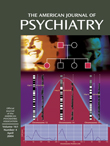Long-Term, Open-Label Study of Risperidone in Children With Severe Disruptive Behaviors and Below-Average IQ
Abstract
OBJECTIVE: This study determined the long-term safety and effectiveness of risperidone in treating severe disruptive behavior in children with subaverage intelligence. METHOD: This 48-week, open-label extension included 107 children ages 5–12 years with severe disruptive behavior disorders (according to DSM-IV criteria and a score of ≥24 on the conduct problem subscale of the Nisonger Child Behavior Rating Form) and subaverage intelligence (IQ 36–84) who completed at least 2 weeks of a randomized, double-blind, placebo-controlled study of risperidone. All patients received 0.02–0.06 mg/kg/day of oral risperidone; the purpose was to accumulate long-term safety data. Scores on the Nisonger Child Behavior Rating Form were also obtained. RESULTS: The mean risperidone dose was 1.5 mg/day. The most common adverse events reported were somnolence (33%), headache (33%), rhinitis (28%), and weight gain (21%). Somnolence was usually mild and transient. The mean weight increase was 5.5 kg; half was attributable to developmentally expected growth. Transient and asymptomatic increases in prolactin levels were observed. There were no significant changes in Extrapyramidal Symptom Rating Scale scores and no cases of tardive dyskinesia. No clinically relevant changes in ECGs or vital signs were noted. Risperidone was associated with rapid, significant improvement on the conduct problem subscale score of the Nisonger Child Behavior Rating Form in patients previously treated with placebo; improvement was maintained during long-term treatment and in patients previously given risperidone. CONCLUSIONS: Long-term risperidone appears to be generally safe, well tolerated, and effective for treating severely disruptive behaviors in children with subaverage intelligence.



